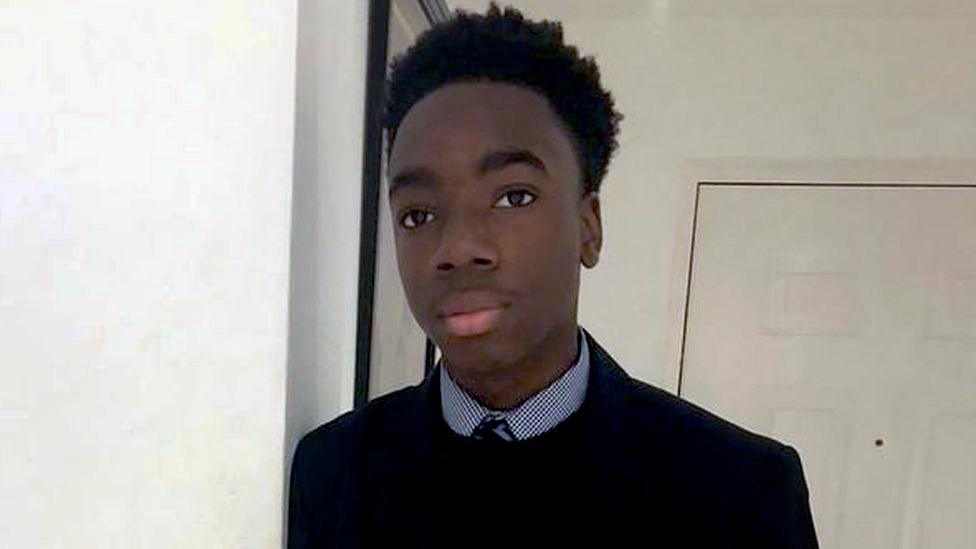Missing black people: Study into 'pattern of discrimination' being carried out
- Published
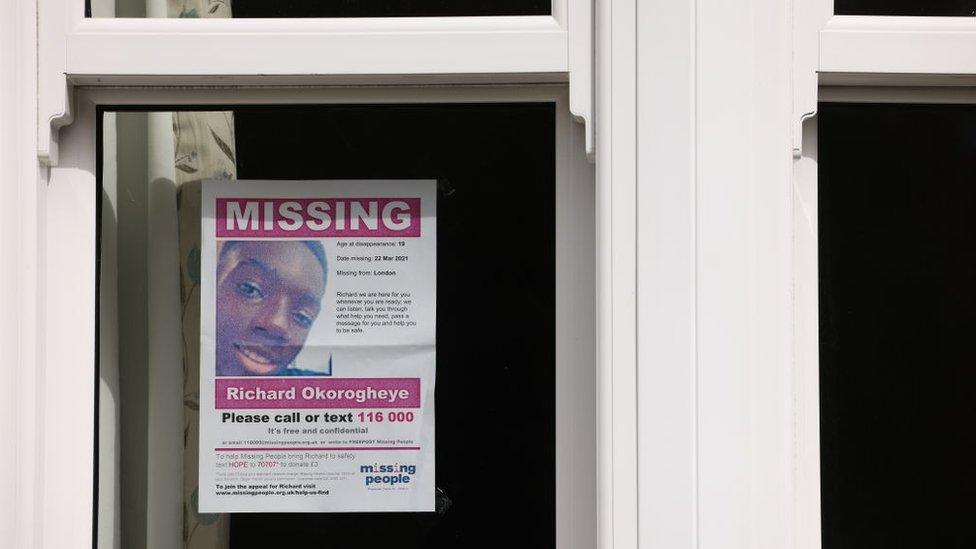
Richard Okorogheye's family say police did not take them seriously enough when their son went missing
A study is being carried out into whether there is a "pattern of discrimination" and "racial bias" when reporting a missing black person.
Black people are four times more likely to be reported missing but are the focus of disproportionately few public appeals, figures show.
Charity Missing People says many black families feel their missing loved ones are not seen as a high enough priority.
It has now launched a survey, external in order to report experiences back to police.
The charity added that both in the police response, and the media reaction, black families often felt neglected.
Between 2019 and 2020 in England and Wales, black people accounted for 14% of missing person cases, while making up 3% of the general population, National Crime Agency (NCA) data shows.
During the same period, white people accounted for 61% of missing person publicity appeals while 22% were for missing black people.
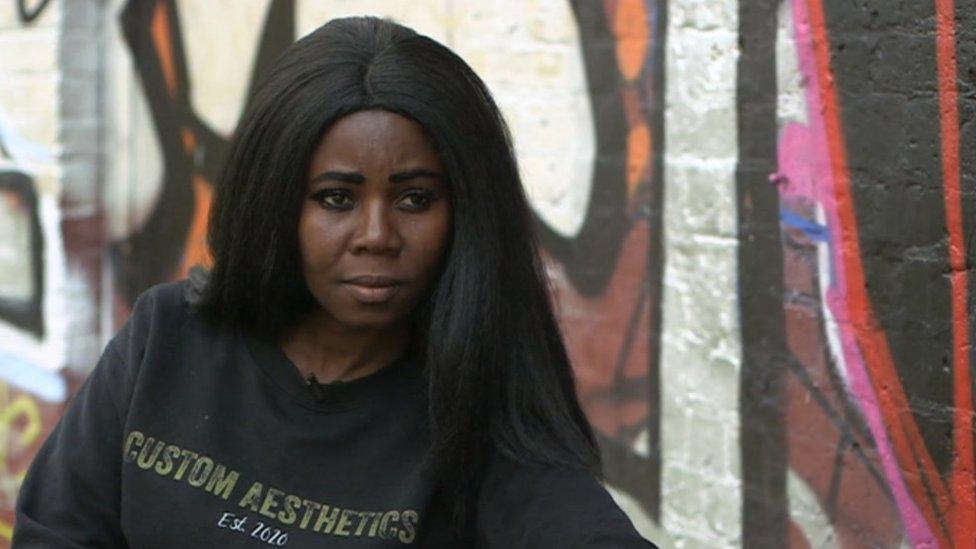
Evidence Joel, whose son Richard Okorogheye went missing in March, is hoping for change
Evidence Joel, whose son Richard Okorogheye went missing in Ladbroke Grove, west London, on 22 March, is one of those campaigning for change.
'He was just the black child'
She criticised the initial police response to her son's disappearance and said police did not take her concerns seriously, despite Richard's health risks from sickle cell disease.
She said the response was very different to the urgency seen in the hunt for Sarah Everard less than three weeks before.
"Her [Sarah Everard] case was flooded all over the newspapers and police took immediate action. We cannot compare the two cases. Richard was just Richard - he was just the black child - a black boy," she said.
Ms Joel said that when she reported her son missing, a police officer replied: "If you can't find your son, how do you expect police officers to find your son for you?'"
Mr Okorogheye, a 19-year-old computer science student, was found dead by police in Essex two weeks after his disappearance.
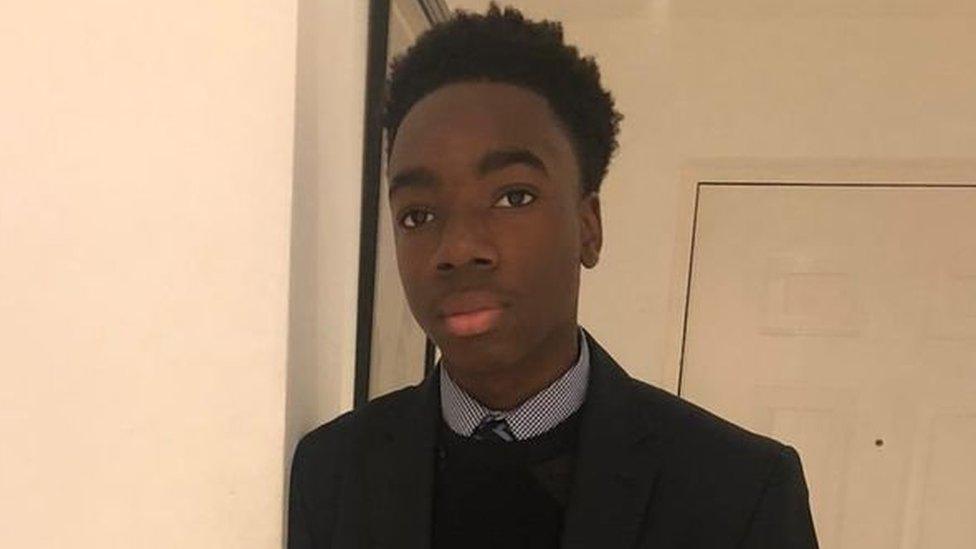
Richard Okorogheye had sickle cell disease and left home without his medication
Misconduct notices have been issued to two Met Police officers over the way his disappearance was handled.
Missing People said it recognised that black people were over-represented in missing statistics compared to any other ethnic group and that it was calling for more research to understand why that was.
"Until this research is completed, we will not know for certain why black people are disproportionately likely to go missing", the charity said.
"However, when we look at the most common reasons for people to go missing, we can see clear correlations with the challenges people from black communities are more likely to face due to inequalities in accessing support, and discrimination in key areas such as employment.
"Racism and racial discrimination can have a significant, negative impact on a person's life chances and their mental health."
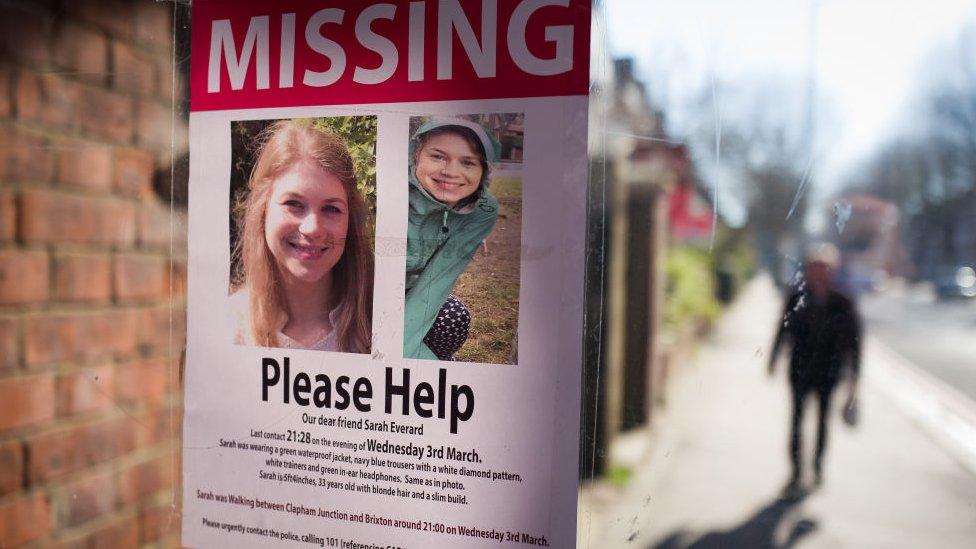
The case of Sarah Everard dominated newspaper headlines
The charity's chief executive, Jo Youle, said: "Every missing person is unique and requires assessment whether publicity and sending out a picture is going to make that person more likely to be safe or less safe," she said.
Ms Youle said the families she had spoken to faced discrimination in various ways; from the police not taking the initial report seriously to families being expected to do more than usual to find their loved one.
"Families from black communities have told us they have struggled to get the police and media attention that their missing person warrants.
"We'd like to work with agencies to figure out why that might be - whether that is about discrimination or not."
In a statement, the Met said: "In the age of social media where people are used to seeing news and updates in real time, the absence of proactive appeals has sometimes been misinterpreted as a lack of police activity, particularly when one case is compared to another, unrelated case.
"In reality, this is more likely to be a reflection of the fact that each case is different and requires its own approach. Even in cases without significant publicity, the public can be reassured that work will be going on behind the scenes."
The charity will feed families' experiences into the Independent Office for Police Complaints which focuses on race discrimination investigations.
Related topics
- Published14 March 2021
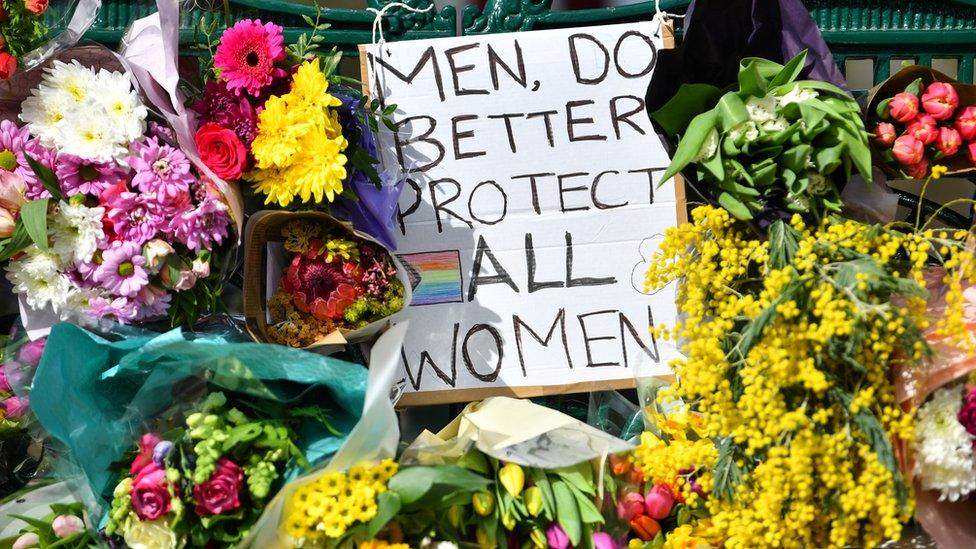
- Published9 July 2021
